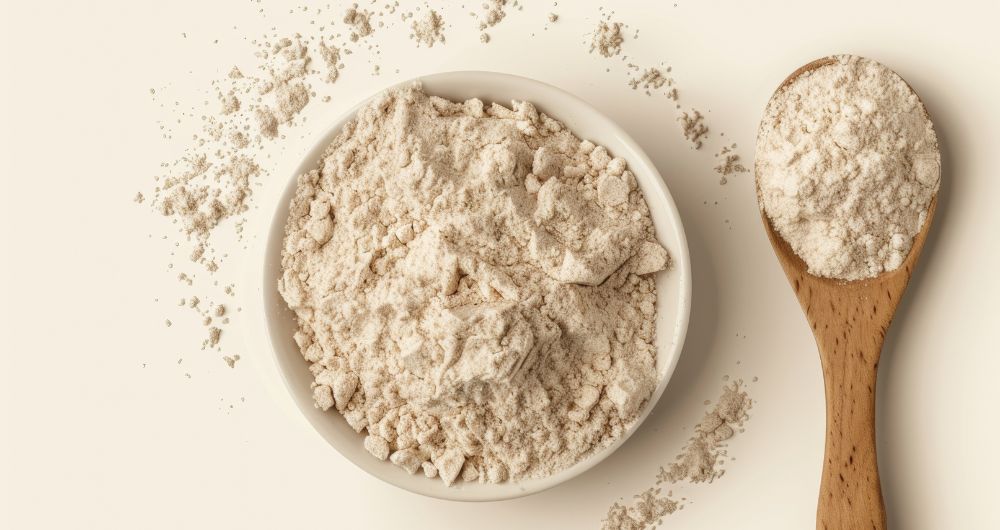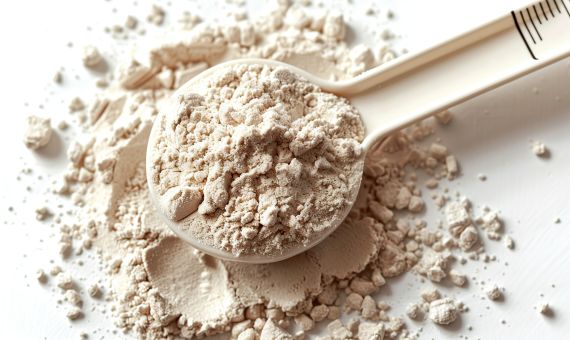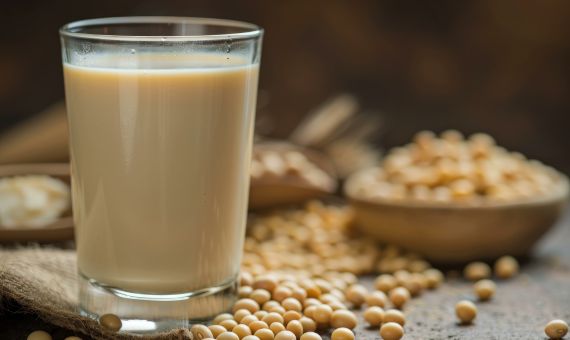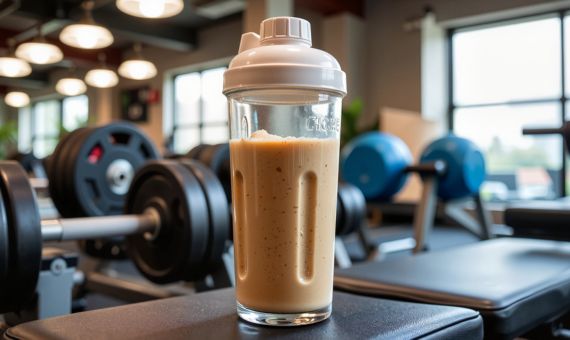
Everything You Need To Know About Soy-Free Protein Powder
What Is Soy-Free Protein Powder?
Soy-free protein powder is a dietary supplement designed to provide a concentrated source of protein without containing soy. It is often derived from ingredients like pea protein, rice protein, hemp, pumpkin seeds, or even animal-based sources like whey or egg whites. These powders are widely used by athletes, fitness enthusiasts, or individuals following specialized diets to help support muscle growth, repair, and overall health.
Why Choose Soy-Free Protein Powder?
There are several compelling reasons why someone might opt for soy-free protein powder over other types:
1.Allergies and Sensitivities
Soy is a common allergen that affects millions, causing various adverse reactions in those with allergies or intolerances. Soy-free protein powder offers a safe alternative, helping individuals meet their protein needs without the risk of allergic reactions, thus promoting well-being and peace of mind.
2. Health Concerns
Some people avoid soy due to concerns about its phytoestrogens, which can mimic estrogen and potentially affect hormone levels. Although research is ongoing, individuals with a history of hormone-related health issues may choose to eliminate soy as a proactive measure to maintain hormonal balance.
3. Dietary Preferences
People on diets like Paleo or Whole30 often avoid soy due to its processing and inflammatory potential, while vegans and vegetarians seek diverse plant-based proteins for balanced nutrition. Soy-free protein powders are an excellent alternative to diversify protein sources and enhance nutrition.
4. Taste and Texture
Soy protein powders have a distinct taste and texture that may not suit everyone, while alternatives like pea or rice protein offer a more neutral flavor for taste-sensitive individuals. The texture of these powders can also impact the enjoyment of smoothies and baked goods, affecting consumer preferences.

Soy-Free Protein for Vegans and Fitness Enthusiasts
Maintaining a balanced and protein-rich diet can be challenging for vegans, especially those who are also dedicated fitness enthusiasts. While soy has been a popular source of plant-based protein, many individuals seek alternatives to diversify their protein intake and avoid potential allergens.

Why Choose Soy-Free Protein?
Opting for soy-free protein sources can offer a myriad of benefits, including reducing the risk of soy allergies and eliminating concerns about genetically modified organisms (GMOs) often associated with soy products. Additionally, diversifying protein sources can enhance the overall nutritional profile of a diet.

Incorporating Soy-Free Protein into Your Diet
There are numerous ways to include soy-free protein in your daily meals. Smoothies, protein bars, and plant-based protein powders made from pea, hemp, or brown rice protein can be convenient options. Additionally, incorporating whole foods like lentils, quinoa, and chickpeas into salads, soups, and stews can ensure you meet your protein needs.
Benefits of Plant-Based Protein Powders
Plant-based protein powders, including soy-free options, offer a range of benefits that are increasingly recognized by health-conscious consumers:
1. Nutrient-Rich
Plant-based proteins are nutrient-dense, providing essential vitamins, minerals, and antioxidants. Hemp protein offers omega-3 fatty acids for heart health, while pea protein is rich in iron, supporting blood circulation and energy. These nutrients enhance a balanced diet.
2. Digestive Health
Many people find plant-based proteins easier to digest than whey or casein, making them a great option for those with lactose intolerance or dairy sensitivities. These alternatives can help prevent discomfort and bloating while ensuring adequate protein intake.
3. Sustainability
Plant-based proteins are more environmentally friendly than animal-based options, needing less land, water, and energy. Choosing vegan protein powder not only benefits personal health but also encourages sustainable agriculture and reduces carbon footprints, appealing to eco-conscious consumers.
Popular Soy-Free Protein Powder Options
1. Pea Protein
Pea protein, sourced from yellow split peas, is praised for its digestibility and rich amino acid profile, especially its high lysine content vital for muscle repair and growth. It's a versatile ingredient for smoothies and baked goods and helps promote satiety, making it a good choice for weight management.
2. Rice Protein
Brown rice protein is a popular plant-based protein option. While it has slightly lower levels of some amino acids, it is often combined with other proteins to achieve a complete amino acid profile, enhancing its nutritional value for those seeking a grain-based protein source.
3. Hemp Protein
Hemp protein is rich in fiber and healthy omega-3 and omega-6 fatty acids. It's a complete protein, containing all nine essential amino acids for optimal health, though it may have a grittier texture that newcomers might need to adjust to.
4. Pumpkin Seed Protein
Pumpkin seed protein is a nutritious option rich in magnesium, zinc, and healthy fats. It supports immune health and muscle function, making it an excellent addition to a balanced diet for fitness enthusiasts.

Soy-Free Protein for Vegans and Fitness Enthusiasts
Maintaining a balanced and protein-rich diet can be challenging for vegans, especially those who are also dedicated fitness enthusiasts. While soy has been a popular source of plant-based protein, many individuals seek alternatives to diversify their protein intake and avoid potential allergens.

Why Soy-Free Protein? Guide for Vegans and Fitness Enthusiasts
Opting for soy-free protein sources can offer a myriad of benefits, including reducing the risk of soy allergies and eliminating concerns about genetically modified organisms (GMOs) often associated with soy products. Diversifying protein sources can enhance overall nutritional profile of a diet.

Understanding Soy-Free Protein Powder
Soy-free protein powder is a supplement for individuals with soy allergies or sensitivities, using alternative plant-based sources such as pea, rice, or hemp protein. Its increasing popularity highlights a greater awareness of dietary restrictions and provides suitable options for consumers.
How to Choose the Best Soy-Free Protein Powder
When selecting a soy-free protein powder, consider the following factors:
1. Ingredient List
Choose products with minimal and natural ingredients. Avoid those with artificial flavors, sweeteners, or preservatives, as whole food ingredients are typically more beneficial for health.
2. Protein Content
Check the protein content per serving to ensure it meets your dietary needs. Most protein powders will provide around 20 grams of protein per serving, which can effectively support muscle growth and recovery.
3. Taste and Texture
If possible, try sample sizes or read reviews to find a product with a taste and texture you enjoy. This can make a significant difference in whether you look forward to incorporating it into your routine.
4. Price and Availability
When selecting vegan protein powders, it's important to balance cost and quality. While premium options can be pricey, budget-friendly alternatives exist, ensuring consistency in your diet.
